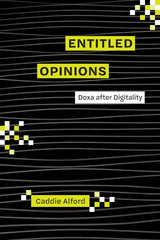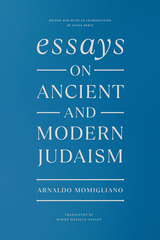318 start with T start with T
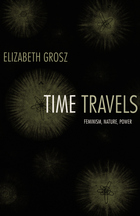
Grosz’s reflections on how rethinking time might generate new understandings of nature, culture, subjectivity, and politics are wide ranging. She moves from a compelling argument that Charles Darwin’s notion of biological and cultural evolution can potentially benefit feminist, queer, and antiracist agendas to an exploration of modern jurisprudence’s reliance on the notion that justice is only immanent in the future and thus is always beyond reach. She examines Henri Bergson’s philosophy of duration in light of the writings of Gilles Deleuze, Maurice Merleau-Ponty, and William James, and she discusses issues of sexual difference, identity, pleasure, and desire in relation to the thought of Deleuze, Friedrich Nietzsche, Michel Foucault, and Luce Irigaray. Together these essays demonstrate the broad scope and applicability of Grosz’s thinking about time as an undertheorized but uniquely productive force.
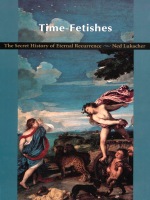
The thinkers in this counter-history of the eternal return lingered long enough on the question of time to learn how to resist separating eternity from time, and how to reflect on the possible identity of time and eternity as a way of resisting all prior metaphysical determinations. Drawing out the implications of Nietzsche’s reinvention of the doctrine of return, Lukacher ranges across a broad spectrum of ancient and modern thinkers. Shakespeare’s role in this history as the “poet of time” is particularly significant, for not only does Shakespeare reactivate the pre-Christian arguments of eternal return, he regards them, and all arguments and images concerning the essence of time and Being, from an inimitably ironic perspective.
As he makes transitions from literature to philosophy and psychoanalysis, Lukacher displays a theoretical imagination and historical vision that bring to the forefront a host of pre- and post-Christian texts in order to decipher in them an encounter with the thought of eternal recurrence that has been too long buried under layers of rigid metaphysical interpretation.
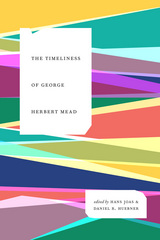
Edited by well-respected Mead scholars Hans Joas and Daniel R. Huebner, the volume as a whole makes a coherent statement that places Mead in dialogue with current research, pushing these domains of scholarship forward while also revitalizing the growing literature on an author who has an ongoing and major influence on sociology, psychology, and philosophy.
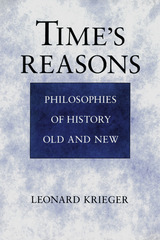
The heart of Krieger's narrative is an insightful analysis of theories of history from the classical period to the present, with a principal focus on the modern period. Krieger's exposition covers such figures as Ranke, Hegel, Comte, Marx, Acton, Troeltsch, Spengler, Braudel, and Foucault, among others, and his discussion involves him in subtle distinctions among terms such as historism, historicism, and historicity. He points to the impact on history of academic political radicalism and its results: the new social history. Krieger argues for the autonomy of historical principles and methods while tracing the importation in the modern period of external principles for historical coherence.
Time's Reasons is a profound attempt to rejuvenate and restore integrity to the discipline of history by one of the leading masters of nineteenth- and twentieth-century historiography. As such, it will be required reading for all historiographers and intellectual historians of the modern period.
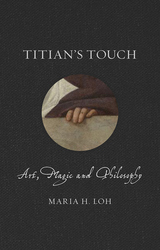
Titian’s art, Maria H. Loh argues in this exquisitely illustrated book, was and is a synesthetic experience. To see is at once to hear, to smell, to taste, and to touch. But while Titian was fully attached to the world around him, he also held the universe in his hands. Like a magician, he could conjure appearances out of thin air. Like a philosopher, his exploration into the very nature of things channelled and challenged the controversial ideas of his day. But as a painter, he created the world anew. Dogs, babies, rubies, and pearls. Falcons, flowers, gloves, and stone. Shepherds, mothers, gods, and men. Paint, canvas, blood, sweat, and tears. In a series of close visual investigations, Loh guides us through the lush, vibrant world of Titian’s touch.
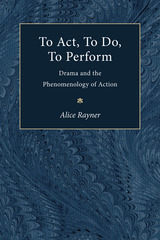
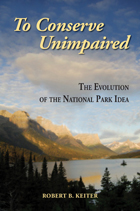
When the national park system was first established in 1916, the goal "to conserve unimpaired" seemed straightforward. But Robert Keiter argues that parks have always served a variety of competing purposes, from wildlife protection and scientific discovery to tourism and commercial development. In this trenchant analysis, he explains how parks must be managed more effectively to meet increasing demands in the face of climate, environmental, and demographic changes.
Taking a topical approach, Keiter traces the history of the national park idea from its inception to its uncertain future. Thematic chapters explore our changing conceptions of the parks as wilderness sanctuaries, playgrounds, educational facilities, and more. He also examines key controversies that have shaped the parks and our perception of them.
Ultimately, Keiter demonstrates that parks cannot be treated as special islands, but must be managed as the critical cores of larger ecosystems. Only when the National Park Service works with surrounding areas can the parks meet critical habitat, large-scale connectivity, clean air and water needs, and also provide sanctuaries where people can experience nature. Today's mandate must remain to conserve unimpaired—but Keiter shows how the national park idea can and must go much farther.
Professionals, students, and scholars with an interest in environmental history, national parks, and federal land management, as well as scientists and managers working on adaptation to climate change should find the book useful and inspiring.
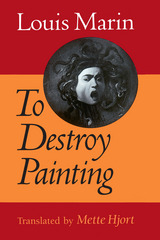
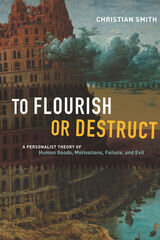
In his 2010 book What Is a Person?, Christian Smith argued that sociology had for too long neglected this fundamental question. Prevailing social theories, he wrote, do not adequately “capture our deep subjective experience as persons, crucial dimensions of the richness of our own lived lives, what thinkers in previous ages might have called our ‘souls’ or ‘hearts.’” Building on Smith’s previous work, To Flourish or Destruct examines the motivations intrinsic to this subjective experience: Why do people do what they do? How can we explain the activity that gives rise to all human social life and social structures?
Smith argues that our actions stem from a motivation to realize what he calls natural human goods: ends that are, by nature, constitutionally good for all human beings. He goes on to explore the ways we can and do fail to realize these ends—a failure that can result in varying gradations of evil. Rooted in critical realism and informed by work in philosophy, psychology, and other fields, Smith’s ambitious book situates the idea of personhood at the center of our attempts to understand how we might shape good human lives and societies.
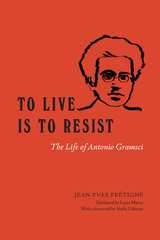
One of the most influential political thinkers of the twentieth century, Antonio Gramsci (1891–1937) has left an indelible mark on philosophy and critical theory. His innovative work on history, society, power, and the state has influenced several generations of readers and political activists, and even shaped important developments in postcolonial thought. But Gramsci’s thinking is scattered across the thousands of notebook pages he wrote while he was imprisoned by Italy’s fascist government from 1926 until shortly before his death.
To guide readers through Gramsci’s life and works, historian Jean-Yves Frétigné offers To Live Is to Resist, an accessible, compelling, and deeply researched portrait of an extraordinary figure. Throughout the book, Frétigné emphasizes Gramsci’s quiet heroism and his unwavering commitment to political practice and resistance. Most powerfully, he shows how Gramsci never surrendered, even in conditions that stripped him of all power—except, of course, the power to think.
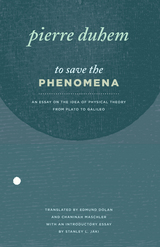
Duhem's 1908 essay questions the relation between physical theory and metaphysics and, more specifically, between astronomy and physics–an issue still of importance today. He critiques the answers given by Greek thought, Arabic science, medieval Christian scholasticism, and, finally, the astronomers of the Renaissance.
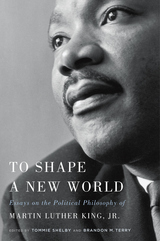
“Fascinating and instructive…King’s philosophy, speaking to us through the written word, may turn out to constitute his most enduring legacy.”
—Annette Gordon-Reed, New York Review of Books
Martin Luther King, Jr., is one of America’s most revered figures, yet despite his mythic stature, the significance of his political thought remains underappreciated. In this indispensable reappraisal, leading scholars—including Cornel West, Martha Nussbaum, and Danielle Allen—consider the substance of his lesser known writings on racism, economic inequality, virtue ethics, just-war theory, reparations, voting rights, civil disobedience, and social justice and find in them an array of compelling challenges to some of the most pressing political dilemmas of our time.
“King was not simply a compelling speaker, but a deeply philosophical intellectual…We still have much to learn from him.”
—Quartz
“A compelling work of philosophy, all the more so because it treats King seriously without inoculating him from the kind of critique important to both his theory and practice.”
—Los Angeles Review of Books
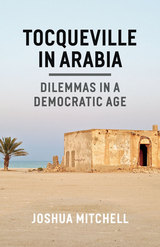
In America, more than a half century of scholarship has explored and chronicled our growing isolation and loneliness. What of the Middle East? Does Tocqueville prediction—confirmed already by the American experience—hold true there as well? Americans look to the Middle East and see a rich network of familial and tribal linkages that seem to suggest that Tocqueville’s analysis does not apply. A closer look reveals that this is not true. In the Middle East today, citizens and subjects live amidst a profound tension: familial and tribal linkages hold them fast, and at the same time rapid modernization has left them as isolated and lonely as so many Americans are today. The looming question, anticipated so long ago by Tocqueville, is how they will respond to this isolation and loneliness.
Joshua Mitchell has spent years teaching Tocqueville’s classic account, Democracy in America, in America and the Arab Gulf and, with Tocqueville in Arabia, he offers a profound account of how the crisis of isolation and loneliness is playing out in similar and in different ways, in America and in the Middle East. While American students tend to value individualism and commercial self-interest, Middle Eastern students have grave doubts about individualism and a deep suspicion about capitalism, which they believe risks the destruction of long-held loyalties and obligations. Where American students, in their more reflective moments, long for more durable links than they currently have, the bonds that constrain the freedoms Middle Eastern students imagine the modern world offers at once frighten them and enkindle their imagination. When pondering suffering, American students tend to believe its causes can be engineered away, through better education and the advances of science. Middle Eastern students tend still to offer religious accounts, but are also enticed by the answers Americans give―and wonder if the two accounts can coexist at all. Moving back and forth between self-understandings in America and in the Middle East, Mitchell offers a framework for understanding the common challenges in both regions, and highlights the great temptation both will have to overcome—rejecting the seeming incoherence of the democratic age, and opting for one or another scheme to re-enchant the world. Whether these schemes take the form of various purported Islamic movements in the Middle East, or the form of enchanted nationalism in American and in Europe, the remedy sought will not cure the ailment of the democratic age. About this, Mitchell comes to the defense Tocqueville long ago offered: the dilemmas of the democratic age can be courageously endured, but they cannot resolved.
We live in a time rife with mutual misunderstandings between America and the Middle East. Tocqueville in Arabia offers a guide to the present, troubled times, leavened by the author’s hopes about the future.
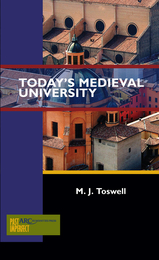

Against this famous figure, however, is a largely unknown or forgotten shape: Suzuki Alan Masaru. Alan was D.T. Suzuki’s adopted son and, though he remained within his father’s shadow, is mostly known as the lyricist of the iconic pop hit “Tokyo Boogie-woogie.” Perhaps due to his frequent scandals and the fraught nature of the relationship, Alan remains unmentioned and unstudied by scholars and historians. Yet by exploring the nature of the relationship between these two, Shoji Yamada digs into the conflicting memories and experiences of these generations in Japan.
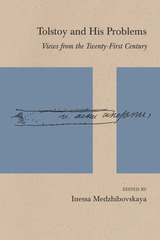
In the broadest sense—with essays on a variety of issues that occupied Tolstoy, such as nihilism, mysticism, social theory, religion, Judaism, education, opera, and Shakespeare—the volume offers a fresh evaluation of Tolstoy's program to reform the ways we live, work, commune with nature and art, practice spirituality, exchange ideas and knowledge, become educated, and speak and think about history and social change.
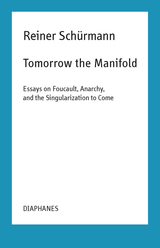
Taken together, these pivotal essays introduce the reader to Schürmann’s most urgent concerns and assemble the conceptual tools that go on to lay the groundwork for his final work, Broken Hegemonies, which offers a subversive re-reading of the history of Western metaphysics outside of Foucault’s genealogical approach. To the reader unfamiliar with Schürmann’s work, these texts establish him as one of the most radical thinkers of the late 20th century, whose work might eventually become legible in our present.

The first examination of predictive technology from the perspective of Catholic theology
Probabilistic predictions of future risk govern much of society. In business and politics alike, institutional structures manage risk by controlling the behavior of consumers and citizens. New technologies comb through past data to predict and shape future action. Choosing between possible future paths can cause anxiety as every decision becomes a calculation to achieve the most optimal outcome.
Tomorrow’s Troubles is the first book to use virtue ethics to analyze these pressing issues. Paul Scherz uses a theological analysis of risk and practical reason to show how risk-based decision theory reorients our relationships to the future through knowledge of possible dangers and foregone opportunities—and fosters a deceptive hope for total security. Scherz presents this view of temporality as problematic because it encourages a desire for stability through one’s own efforts instead of reliance on God. He also argues that the largest problem with predictive models is that they do not address individual reason and free will. Instead of dwelling on a future, we cannot control, we can use our past experiences and the Christian tradition to focus on discerning God’s will in the present.
Tomorrow’s Troubles offers a thoughtful new framework that will help Christians benefit from the positive aspects of predictive technologies while recognizing God’s role in our lives and our futures.

Boldly original and boundary defining, The Topological Imagination clears a space for an intellectual encounter with the shape of human imagining. Joining two commonly opposed domains, literature and mathematics, Angus Fletcher maps the imagination’s ever-ramifying contours and dimensions, and along the way compels us to re-envision our human existence on the most unusual sphere ever imagined, Earth.
Words and numbers are the twin powers that create value in our world. Poetry and other forms of creative literature stretch our ability to evaluate through the use of metaphors. In this sense, the literary imagination aligns with topology, the branch of mathematics that studies shape and space. Topology grasps the quality of geometries rather than their quantifiable measurements. It envisions how shapes can be bent, twisted, or stretched without losing contact with their original forms—one of the discoveries of the eighteenth-century mathematician Leonhard Euler, whose Polyhedron Theorem demonstrated how shapes preserve “permanence in change,” like an aging though familiar face.
The mysterious dimensionality of our existence, Fletcher says, is connected to our inhabiting a world that also inhabits us. Theories of cyclical history reflect circulatory biological patterns; the day-night cycle shapes our adaptive, emergent patterns of thought; the topology of islands shapes the evolution of evolutionary theory. Connecting literature, philosophy, mathematics, and science, The Topological Imagination is an urgent and transformative work, and a profound invitation to thought.
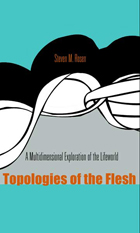
The concept of “flesh” in philosophical terms derives from the writings of Maurice Merleau-Ponty. This was the word he used to name the concrete realm of sentient bodies and life processes that has been eclipsed by the abstractions of science, technology, and modern culture. Topology, to conventional understanding, is the branch of mathematics that concerns itself with the properties of geometric figures that stay the same when the figures are stretched or deformed.
Topologies of the Flesh is an original blend of continental thought and mathematical imagination. Steven M. Rosen opens up a new area of philosophical inquiry: topological phenomenology. Through his unique application of qualitative mathematics, he extends the approaches of Merleau-Ponty and Heidegger so as to offer a detailed exploration of previously uncharted dimensions of human experience and the natural world.
Rosen’s unprecedented marriage of topology and phenomenology is motivated by the desire to help overcome the pervasive dualism of contemporary philosophy and Western culture at large. To carry this to completion, he must address his own dualistic stance as author. Challenging the author’s traditional posture of detachment and anonymity, Rosen makes his presence vividly felt in his final chapter, and his philosophical analysis is transformed into a living reality.
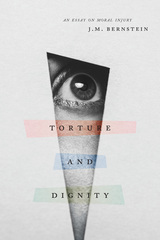
Beginning with the attempts to abolish torture in the eighteenth century, and then sensitively examining what is suffered in torture and related transgressions, such as rape, Bernstein elaborates a powerful new conception of moral injury. Crucially, he shows, moral injury always involves an injury to the status of an individual as a person—it is a violent assault against his or her dignity. Elaborating on this critical element of moral injury, he demonstrates that the mutual recognitions of trust form the invisible substance of our moral lives, that dignity is a fragile social possession, and that the perspective of ourselves as potential victims is an ineliminable feature of everyday moral experience.
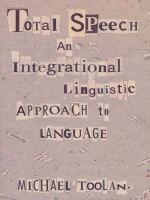
In every foundational area of linguistics—from literal meaning and metaphor to the nature of repetition to the status of linguistic rules—Toolan advances fascinating and provocative criticisms of received linguistic assumptions. Drawing inspiration from the writings of language theorist Roy Harris, Toolan brings the integrationalist perspective to bear on legal cases, the reception of Salman Rushdie, poetry, and the language of children. Toolan demonstrates that the embeddedness of language and the situation-sensitive mutability of meaning reveal language as a tool for re-fashioning and renewal.
Total Speech breaks free of standard linguistics’ fascinated attraction with “cognitive blueprints” and quasi-algorithmic processing to characterize language anew. Toolan’s reflections on the essence of language, including his important discussion of intention, have strong implications for students and scholars of discourse analysis, literature, the law, anthropology, philosophy of language, communication theory, and cognitive science, as well as linguistics.
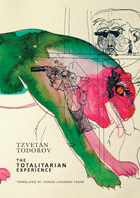
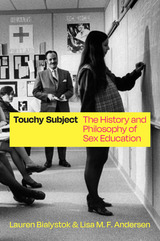
In the United States, sex education is more than just an uncomfortable rite of passage: it's a political hobby horse that is increasingly out of touch with young people’s needs. In Touchy Subject, philosopher Lauren Bialystok and historian Lisa M. F. Andersen unpack debates over sex education, explaining why it’s worth fighting for, what points of consensus we can build upon, and what sort of sex education schools should pursue in the future.
Andersen surveys the history of school-based sex education in the United States, describing the key question driving reform in each era. In turn, Bialystok analyzes the controversies over sex education to make sense of the arguments and offer advice about how to make educational choices today. Together, Bialystok and Andersen argue for a novel framework, Democratic Humanistic Sexuality Education, which exceeds the current conception of “comprehensive sex education” while making room for contextual variation. More than giving an honest run-down of the birds and the bees, sex education should respond to the features of young people’s evolving worlds, especially the digital world, and the inequities that put some students at much higher risk of sexual harm than others. Throughout the book, the authors show how sex education has progressed and how the very concept of “progress” remains contestable.
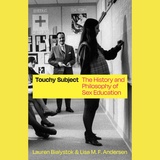
A case for sex education that puts it in historical and philosophical context.
In the United States, sex education is more than just an uncomfortable rite of passage: it's a political hobby horse that is increasingly out of touch with young people’s needs. In Touchy Subject, philosopher Lauren Bialystok and historian Lisa M. F. Andersen unpack debates over sex education, explaining why it’s worth fighting for, what points of consensus we can build upon, and what sort of sex education schools should pursue in the future.
Andersen surveys the history of school-based sex education in the United States, describing the key question driving reform in each era. In turn, Bialystok analyzes the controversies over sex education to make sense of the arguments and offer advice about how to make educational choices today. Together, Bialystok and Andersen argue for a novel framework, Democratic Humanistic Sexuality Education, which exceeds the current conception of “comprehensive sex education” while making room for contextual variation. More than giving an honest run-down of the birds and the bees, sex education should respond to the features of young people’s evolving worlds, especially the digital world, and the inequities that put some students at much higher risk of sexual harm than others. Throughout the book, the authors show how sex education has progressed and how the very concept of “progress” remains contestable.
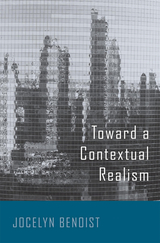
An award-winning philosopher bridges the continental-analytic divide with an important contribution to the debate on the meaning of realism.
Jocelyn Benoist argues for a philosophical point of view that prioritizes the concept of reality. The human mind’s attitudes toward reality, he posits, both depend on reality and must navigate within it.
Refusing the path of metaphysical realism, which would make reality an object of speculation in itself, independent of any reflection on our ways of approaching it or thinking about it, Benoist defends the idea of an intentionality placed in reality—contextualized. Intentionality is an essential part of any realist philosophical position; Benoist’s innovation is to insist on looking to context to develop a renewed realism that draws conclusions from contemporary philosophy of language and applies them methodically to issues in the fields of metaphysics and the philosophy of the mind. “What there is”—the traditional subject of metaphysics—can be determined only in context.
Benoist offers a sharp criticism of acontextual ontology and acontextual approaches to the mind and reality. At the same time, he opposes postmodern anti-realism and the semantic approach characteristic of classic analytic philosophy. Instead, Toward a Contextual Realism bridges the analytic-continental divide while providing the foundation for a radically contextualist philosophy of mind and metaphysics. “To be” is to be in a context.
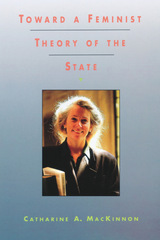

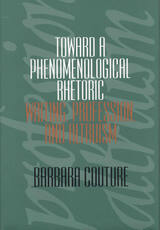
Current rhetorical and critical theory for the most part separates writing from consciousness and presumes relative truth to be the only possible expressive goal for rhetoric. These presumptions are reflected in our tradition of persuasive rhetoric, which values writing that successfully argues one person’s belief at the expense of another’s. Barbara Couture presents a case for a phenomenological rhetoric, one that values and respects consciousness and selfhood and that restores to rhetoric the possibility of seeking an all-embracing truth through pacific and cooperative interaction.
Couture discusses the premises on which current interpretive theory has supported relative truth as the philosophical grounding for rhetoric, premises, she argues, that have led to constraints on our notion of truth that divorce it from human experience. She then shows how phenomenological philosophy might guide the theory and practice of rhetoric, reanimating its role in the human enterprise of seeking a shared truth. She proposes profession and altruism as two guiding metaphors for the phenomenological activity of "truth-seeking through interaction."
Among the contemporary rhetoricians and philosophers who influence Couture are Pierre Teilhard de Chardin, Martin Buber, Charles Altieri, Charles Taylor, Alasdair Maclntyre, and Jürgen Habermas.
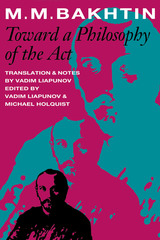
Rescued in 1972 from a storeroom in which rats and seeping water had severely damaged the fifty-year-old manuscript, this text is the earliest major work (1919-1921) of the great Russian philosopher M. M. Bakhtin. Toward a Philosophy of the Act contains the first occurrences of themes that occupied Bakhtin throughout his long career. The topics of authoring, responsibility, self and other, the moral significance of "outsideness," participatory thinking, the implications for the individual subject of having "no-alibi in existence," the difference between the world as experienced in actions and the world as represented in discourse—all are broached here in the heat of discovery. This is the "heart of the heart" of Bakhtin, the center of the dialogue between being and language, the world and mind, "the given" and "the created" that forms the core of Bakhtin's distinctive dialogism.
A special feature of this work is Bakhtin's struggle with the philosophy of Immanuel Kant. Put very simply, this text is an attempt to go beyond Kant's formulation of the ethical imperative. mci will be important for scholars across the humanities as they grapple with the increasingly vexed relationship between aesthetics and ethics.
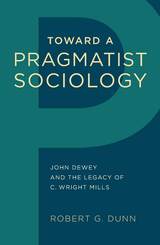
In Toward a Pragmatist Sociology, Robert Dunn explores the relationship between the ideas of philosopher and educator John Dewey and those of sociologist C. Wright Mills in order to provide a philosophical and theoretical foundation for the development of a critical and public sociology. Dunn recovers an intellectual and conceptual framework for transforming sociology into a more substantive, comprehensive, and socially useful discipline.
Toward a Pragmatist Sociology argues that Dewey and Mills shared a common vision of a relevant, critical, public sociology dedicated to the solution of societal problems. Dunn investigates the past and present state of the discipline, critiquing its dominant tendencies, and offering historical examples of alternatives to conventional sociological approaches.
By stressing the similar intellectual and moral visions of both men, Toward a Pragmatist Sociology provides an original treatment of two important American thinkers whose work offers a conception and model of a sociology with a sense of moral and political purpose and public relevance. It should liberate future sociologists and others to regard the discipline as not only a science but an intellectual, moral, and political enterprise.
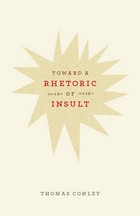
From high school cafeterias to the floor of Congress, insult is a truly universal and ubiquitous cultural practice with a long and earthy history. And yet, this most human of human behaviors has rarely been the subject of organized and comprehensive attention—until Toward a Rhetoric of Insult. Viewed through the lens of the study of rhetoric, insult, Thomas M. Conley argues, is revealed as at once antisocial and crucial for human relations, both divisive and unifying.
Explaining how this works and what exactly makes up a rhetoric of insult prompts Conley to range across the vast and splendidly colorful history of offense. Taking in Monty Python, Shakespeare, Eminem, Cicero, Henry Ford, and the Latin poet Martial, Conley breaks down various types of insults, examines the importance of audience, and explores the benign side of abuse. In doing so, Conley initiates readers into the world of insult appreciation, enabling us to regard insults not solely as means of expressing enmity or disdain, but as fascinating aspects of human interaction.
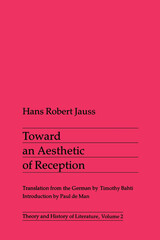

Toward an Architecture of Enjoyment is the first publication in any language of the only book devoted to architecture by Henri Lefebvre. Written in 1973 but only recently discovered in a private archive, this work extends Lefebvre’s influential theory of urban space to the question of architecture. Taking the practices and perspective of habitation as his starting place, Lefebvre redefines architecture as a mode of imagination rather than a specialized process or a collection of monuments. He calls for an architecture of jouissance—of pleasure or enjoyment—centered on the body and its rhythms and based on the possibilities of the senses.
Examining architectural examples from the Renaissance to the postwar period, Lefebvre investigates the bodily pleasures of moving in and around buildings and monuments, urban spaces, and gardens and landscapes. He argues that areas dedicated to enjoyment, sensuality, and desire are important sites for a society passing beyond industrial modernization.
Lefebvre’s theories on space and urbanization fundamentally reshaped the way we understand cities. Toward an Architecture of Enjoyment promises a similar impact on how we think about, and live within, architecture.
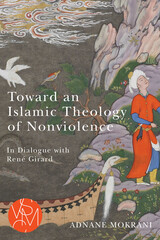
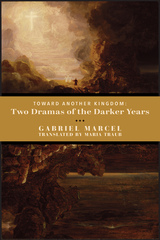
Marcel's dramas require characters to respond authentically and from their true selves. He thereby offers the vision of how individual compromises may build up to break the world and condemn, or, conversely, contribute to the discovery and meaning of relation and redemption. Traub's new translation will interest the player as much as the scholar, and Marcel's aptitude for theatrical writing is proven once again. His intellectual sensitivity creates characters that beckon performance, which is an added dimension to the presentation of the human condition.
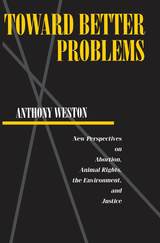
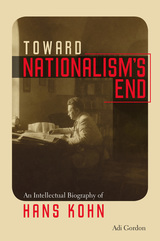
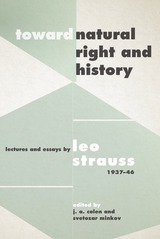
Previously unpublished in book form, Strauss’s lectures are presented here in a thematic order that mirrors Natural Right and History and with interpretive essays by J. A. Colen, Christopher Lynch, Svetozar Minkov, Daniel Tanguay, Nathan Tarcov, and Michael Zuckert that establish their relation to the work. Rounding out the book are copious annotations and notes to facilitate further study.
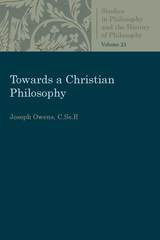
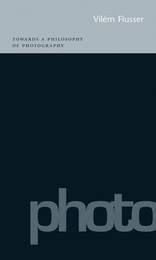

After laying out his argument for a new aesthetics of production in introductory chapters that discuss the work of Spinoza, Nietzsche, and Bergson, as well as Heidegger and Kant, Egenhofer applies this theoretical framework to case studies on Michael Asher, Marcel Duchamp, Thomas Hirschhorn, and Piet Mondrian. An aesthetics of production does not, he argues, imply a nostalgia for the artisanal or for a work of art’s singularity, but a way to bring together elements of critical materialism with a thorough reevaluation of the modern art and abstraction.

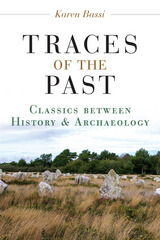
Aimed at classicists, literary scholars, ancient historians, cultural historians, and archaeological theorists, the book combines three areas of research: time as a feature of narrative structure in literary theory; the concept of “the past itself” in the philosophy of history; and the ontological status of material objects in archaeological theory. Each of five central chapters explores how specific protoarchaeological narratives—from the fate of Zeus’ stone in Hesiod’s Theogony to the contest between words and objects in Aristophanes’ Frogs—both expose and attempt to bridge this gap. Throughout, the book serves as a response to Herodotus’ task in writing the Histories, namely, to ensure that “the past deeds of men do not fade with time.”
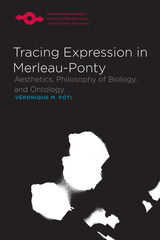
The French philosopher Renaud Barbaras remarked that late in Maurice Merleau-Ponty’s career, “The phenomenology of perception fulfills itself as a philosophy of expression.” In Tracing Expression in Merleau-Ponty: Aesthetics, Philosophy of Biology, and Ontology, Véronique M. Fótiaddresses the guiding yet neglected theme of expression in Merleau-Ponty’s thought. She traces Merleau-Ponty’s ideas about how individuals express creative or artistic impulses through his three essays on aesthetics, his engagement with animality and the “new biology” in the second of his lecture courses on nature of 1957–58, and in his late ontology, articulated in 1964 in the fragmentary text of Le visible et l’invisible (The Visible and the Invisible). With the exception of a discussion of Merleau-Ponty’s 1945 essay “Cezanne’s Doubt,” Fóti engages with Merleau-Ponty’s late and final thought, with close attention to both his scientific and philosophical interlocutors, especially the continental rationalists. Expression shows itself, in Merleau-Ponty’s thought, to be primordial, and this innate and fundamental nature of expression has implications for his understanding of artistic creation, science, and philosophy.
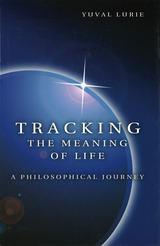
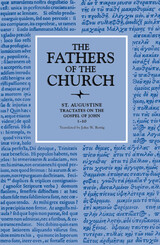
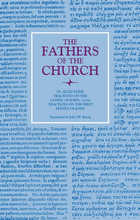
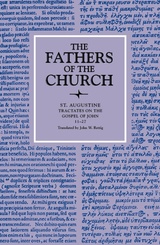
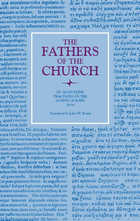
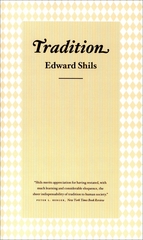
"Shils is a man of fabled learning, whose mind purrs powerfully like the moth at dusk. I hesitate to use the word conservative of him because it misses the central concern of his work, which is not conservatism, but the conservation of those human resources and achievements which are richest, and matter most."—David A. Martin, Times Literary Supplement
"Tradition is the first comprehensive treatment of the subject that encompasses the totality of tradition in all its multifaceted variables and functions. . . . It is a landmark analytical and theoretical sociological study that not only fills a need but also provides a basic model and impetus for further research."—H. Leon Abrams Jr., Sociology
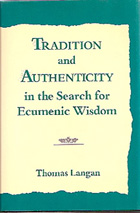
Our emerging world system is bringing the great traditions and cultures it has spawned into ever more intimate and dangerous contact. Langan argues that we must struggle toward a unity of discourse respectful of genuine experiences of varying civilizations if we are to live peacefully on one planet.
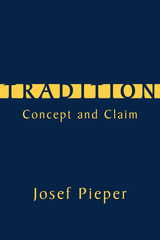
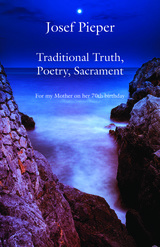
Pieper collects his contributions to radio programs and to a number of journals and periodicals. The book also includes a selection of notes and comments. The contributions fall into two main groups: the period which encompasses the immediate pre-war period as well as the war period itself, and the post-war period up to 1953.The reader becomes witness, first, to Pieper’s problems with the National Socialist regime and, second, to his problems with the ensuing challenges to religious life as it is exposed to increasing secularization.
As with his later works, Pieper draws on traditional wisdom which, for him, dates back to Plato and Aristotle, and in these contributions we also see his early preoccupation with the wisdom of St. Thomas Aquinas. The normal boundaries between philosophy and theology are here not clearly drawn. Pieper is preoccupied with the mystery of our world and its importance as a source of symbols signifying deeper levels of reality. He sees the sacraments as achieving their fundamental effect from divine intervention, but he also highlights the need for careful observance of the rituals, so that their meaning is not obscured. Proper execution of the sacrament should enable the faithful to enjoy the existential fruits of their participation in the ritual.
This work manifests the organic cohesion of Pieper’s thinking, and it reflects his profound awareness of the role to be played not so much by the professional (academic) philosopher as by the existential Philosophizer.
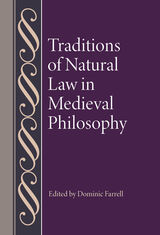
These various traditions of medieval reflection on natural law, and their interrelation, merit further study, particularly since they touch upon many current philosophical concerns. They grapple with the problem of ethical and religious pluralism. They consider whether universally valid standards of action and social life are accessible to those who rely on reason rather than divine law. In so doing, they develop sophisticated accounts of many central issues in metaethics, action theory, jurisprudence, and the philosophy of religion. However, do they reach a consensus about natural law, or do they end up defending incommensurable ethical frameworks? Do they confirm the value of arguments based on natural law or do they cast doubt on it?
This collection brings together contributions from various expert scholars to explore these issues and the pluralism that exists within medieval reflection on natural law. It is the first one to study the relation between the natural law theories of these various traditions of medieval philosophy: Jewish, Islamic, Byzantine, and Latin.
Each of the first four essays surveys the ‘natural law theory’ of one of the religious traditions of medieval philosophy—Jewish, Islamic, Byzantine, and Latin—and its relation to the others. The next four essays explore some of the alternative accounts of natural law that arise within the Latin tradition. They range over St. Bonaventure, Peter of Tarentaise, Matthew of Aquasparta, John Duns Scotus, and Marsilius of Padua.
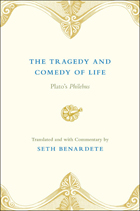
In The Tragedy and Comedy of Life, Seth Benardete focuses on the idea of the good in what is widely regarded as one of Plato's most challenging and complex dialogues, the Philebus. Traditionally the Philebus is interpreted as affirming the doctrine that the good resides in thought and mind rather than in pleasure or the body. Benardete challenges this view, arguing that Socrates vindicates the life of the mind over the life of pleasure not by separating the two and advocating a strict asceticism, but by mixing pleasure and pain with mind in such a way that the philosophic life emerges as the only possible human life.
Benardete combines a probing and challenging commentary that subtly mirrors and illuminates the complexities of this dialogue with the finest English translation of the Philebus yet available. The result is a work that will be of great value to classicists, philosophers, and political theorists alike.

The first book to argue for the concept of tragic dilemmas in Christian ethics
Moral dilemmas arise when individuals are unable to fulfill all of their ethical obligations. Tragic dilemmas are moral dilemmas that involve great tragedy. The existence of moral and tragic dilemmas is debated in philosophy and often dismissed in theology based on the notion that there are effective strategies that completely solve hard ethical situations. Yet cases from real-life events in war and bioethics offer compelling evidence for the existence of tragic dilemmas.
In Tragic Dilemmas in Christian Ethics, Jackson-Meyer expertly explores the thought of Augustine and Aquinas to show the limits of their treatment of hard cases, as well as where their thought can be built on and expanded in relation to tragic dilemmas. She recognizes and develops a new theological understanding of tragic dilemmas rooted in moral philosophy, contemporary case studies, and psychological literature on moral injury. Jackson-Meyer argues that in tragic dilemmas moral agents choose between conflicting nonnegotiable moral obligations rooted in Christian commitments to protect human life and the vulnerable. Personal culpability is mitigated due to constrained situations and society is also culpable when tragic dilemmas are a result of structural sin. In response, Jackson-Meyer implores Christian communities to offer individual and communal healing after tragic dilemmas and to acknowledge their own participation in injustice.
Tragic Dilemmas in Christian Ethics offers practical strategies that Christian communities can use to provide healing to those who have acted in tragic dilemmas and to transform the unjust structures that often cause these tragedies.
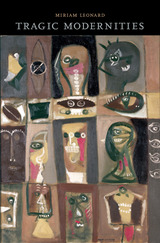
The ancient Greek tragedies of Aeschylus, Sophocles, and Euripides have long been considered foundational works of Western literature, revered for their aesthetic perfection and timeless truths. Under the microscope of recent scholarship, however, the presumed universality of Greek tragedy has started to fade, as the particularities of Athenian culture have come into sharper focus. The world revealed is so far removed from modern sensibilities that, in the eyes of many, tragedy’s viability as a modern art form has been fatally undermined. Tragic Modernities steers a new course between the uncritical appreciation and the resolute historicism of the past two centuries, to explore the continuing relevance of tragedy in contemporary life.
Through the writings of such influential figures as Hegel, Marx, Nietzsche, and Freud, tragedy became a crucial reference point for philosophical and intellectual arguments. These thinkers turned to Greek tragedy in particular to support their claims about history, revolution, gender, and sexuality. From Freud’s Oedipus complex to Nietzsche’s Dionysiac, from Hegel’s dialectics to Marx’s alienation, tragedy provided the key terms and mental architecture of the nineteenth and twentieth centuries. By highlighting the philosophical significance of tragedy, Miriam Leonard makes a compelling case for the ways tragedy has shaped the experience of modernity and elucidates why modern conceptualizations of tragedy necessarily color our understanding of antiquity. Exceptional in its scope and argument, Tragic Modernities contests the idea of the death of tragedy and argues powerfully for the continued vitality of Greek tragic theater in the central debates of contemporary culture.
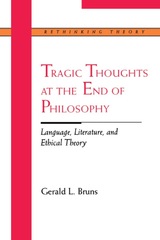
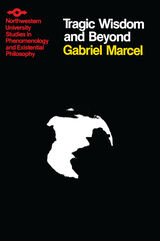
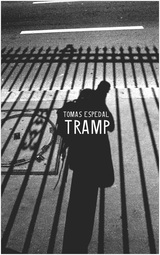
“Why travel?” asks Tomas Espedal in Tramp, “Why not just stay at home, in your room, in your house, in the place you like better than any other, your own place. The familiar house, the requisite rooms in which we have gathered the things we need, a good bed, a desk, a whole pile of books. The windows giving on to the sea and the garden with its apple trees and holly hedge, a beautiful garden, growing wild.”
The first step in any trip or journey is always a footstep—the brave or curious act of putting one foot in front of the other and stepping out of the house onto the sidewalk below. Here, Espedal contemplates what this ambulatory mode of travel has meant for great artists and thinkers, including Rousseau, Kant, Hazlitt, Thoreau, Rimbaud, Whitman, Giacometti, and Robert Louis Stevenson. In the process, he confronts his own inability to write from a fixed abode and his refusal to banish the temptation to become permanently itinerant.
Lyrical and rebellious, immediate and sensuous, Tramp conveys Espedal’s own need to explore on foot—in places as diverse as Wales and Turkey—and offers us the excitement and adventure of being a companion on his fascinating and intriguing travels.
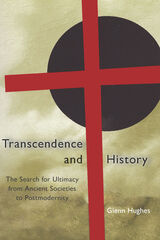
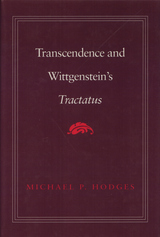
Although Wittgenstein claimed that his first book, the Tractatus Logico-Philosophicus, was essentially an ethical work, it has been viewed insistently as a purely logical one. His later work, Philosophical Investigations, is generally seen as presenting totally different ideas from his earlier writings. In this book, Michael Hodges shows how Wittgenstein’s later work emerged from his earlier Tractatus, and he unifies the early philosophy, both its well-known logical aspects and the lesser known ethical dimensions, in terms of the notion of transcendence.
Hodges studies the Tractatus in light of Wittgenstein’s own claim that the Philosophical Investigations can only be understood when read against the background of the Tractatus. At the heart of an understanding of the earlier work is the idea of transcendence which structures both Wittgenstein’s logical and ethical insights. Seen in terms of this notion, the rigorous unity of Wittgenstein’s early thinking becomes apparent and the gestalt shift to the later philosophy comes clearly into focus.

The late Perry Miller once stated, “I have been compelled to insist that the mind of man is the basic factor in human history,” and his study of the mind in America has shaped the thought of three decades of scholars. The fifteen essays here collected—several of them previously unpublished—address themselves to the facets of the American consciousness and to their expression in literature from the time of the Cambridge Agreement to the Nobel Prize acceptance speeches of Hemingway and Faulkner. A companion volume to Errand into the Wilderness, its general theme is one adumbrated in Miller’s two-volume masterpiece, The New England Mind—the thrust of civilization into the vast, empty continent and its effect upon Americans’ concept of themselves as “nature’s nation.”
The essays first concentrate on Puritan covenant theology and its gradual adaptation to changing condition in America: the decline in zeal for a “Bible commonwealth,” the growth of trade and industry, and the necessity for coexisting with large masses of unchurched people. As the book progresses, the emphasis shifts from religion to the philosophy of nature to the development of an original literature, although Miller is usually analyzing simultaneously all three aspects of the American quest for self-identity. In the final essays, he shows how the forces that molded the self-conscious articulateness of the early New Englanders still operate in the work of contemporary American writers.
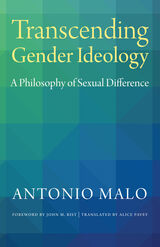

Arthur C. Danto argues that recent developments in the art world, in particular the production of works of art that cannot be told from ordinary things, make urgent the need for a new theory of art and make plain the factors such a theory can and cannot involve. In the course of constructing such a theory, he seeks to demonstrate the relationship between philosophy and art, as well as the connections that hold between art and social institutions and art history.
The book distinguishes what belongs to artistic theory from what has traditionally been confused with it, namely aesthetic theory and offers as well a systematic account of metaphor, expression, and style, together with an original account of artistic representation. A wealth of examples, drawn especially from recent and contemporary art, illuminate the argument.
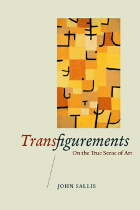
Transfigurements develops a framework for thinking about art through innovative readings of some of the most important philosophical writing on the subject by Kant, Hegel, and Heidegger. Sallis exposes new layers in their texts and theories while also marking their limits. By doing so, his aim is to show that philosophy needs to attend to art directly. Consequently, Sallis also addresses a wide range of works of art, including paintings by Raphael, Monet, and Klee; Shakespeare’s comedies; and the music of Beethoven, Schubert, Mahler, and Tan Dun. Through these interpretations, he puts forth a compelling new elaboration of the philosophy of art.

During his career at Harvard, Morton Horwitz changed the questions legal historians ask. The Transformation of American Law, 1780–1860 (1977) disclosed the many ways that judge-made law favored commercial and property interests and remade law to promote economic growth. The Transformation of American Law, 1870–1960 (1992) continued that project, with a focus on ideas that reshaped law as we struggled for objective and neutral legal responses to our country’s crises.
In this book, Horwitz’s students re-examine legal history from America’s colonial era to the late twentieth century. They ask classic Horwitzian questions, of how legal doctrine, thought, and practice are shaped by the interests of the powerful, as well as by the ideas of lawyers, politicians, and others. The essays address current questions in legal history, from colonial legal practice to questions of empire, civil rights, and constitutionalism in a democracy. The essays are, like Horwitz, provocative and original as they continue his transformation of American legal history.
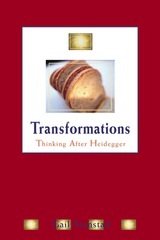
How are we to think and act constructively in the face of today’s environmental and political catastrophes? Gail Stenstad finds inspiring answers in the thought of German philosopher Martin Heidegger. Rather than simply describing or explaining Heidegger’s transformative way of thinking, Stenstad’s writing enacts it, bringing new insight into contemporary environmental, political, and personal issues. Readers come to understand some of Heidegger’s most challenging concepts through experiencing them. This is a truly creative scholarly work that invites all readers to carry Heidegger’s transformative thinking into their own areas of deep concern.

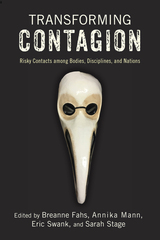
Moving from viruses, vaccines, and copycat murder to gay panics, xenophobia, and psychopaths, Transforming Contagion energetically fuses critical humanities and social science perspectives into a boundary-smashing interdisciplinary collection on contagion. The contributors provocatively suggest contagion to be as full of possibilities for revolution and resistance as it is for the descent into madness, malice, and extensive state control. The infectious practices rooted in politics, film, psychological exchanges, social movements, the classroom, and the circulation of a literary text or meme on social media compellingly reveal patterns that emerge in those attempts to re-route, quarantine, define, or even exacerbate various contagions.
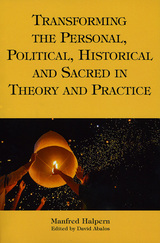
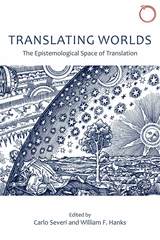
Since Ferdinand de Saussure and Franz Boas, languages have been seen as systems whose differences make precise translation nearly impossible. And still others have viewed translation between languages as principally indeterminate. The contributors here argue that the challenge posed by the constant confrontation between incommensurable worlds and systems may be the most fertile ground for state-of-the-art ethnographic theory and practice. Ranging from tourism in New Guinea to shamanism in the Amazon to the globally ubiquitous restaurant menu, the contributors mix philosophy and ethnography to redefine translation not only as a key technique for understanding ethnography but as a larger principle in epistemology.
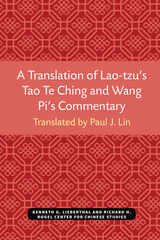

The Analects (Lunyu) is one of the most influential texts in human history. As a putative record of Confucius’s (551–479 B.C.E.) teachings and a foundational text in scriptural Confucianism, this classic was instrumental in shaping intellectual traditions in China and East Asia until the early twentieth century.
But no premodern reader read only the text of the Analects itself. Rather, the Analects was embedded in a web of interpretation that mediated its meaning. Modern interpreters of the Analects only rarely acknowledge this legacy of two thousand years of commentaries. How well do we understand prominent or key commentaries from this tradition? How often do we read such commentaries as we might read the text on which they comment? Many commentaries do more than simply comment on a text. Not only do they shape the reading of the text, but passages of text serve as pretexts for the commentator to develop and expound his own body of thought.
This book attempts to redress our neglect of commentaries by analyzing four key works dating from the late second century to the mid-nineteenth century (a period substantially contemporaneous with the rise and decline of scriptural Confucianism): the commentaries of He Yan (ca. 190–249); Huang Kan (488–545); Zhu Xi (1130–1200); and Liu Baonan (1791–1855) and Liu Gongmian (1821–1880).
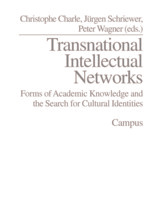
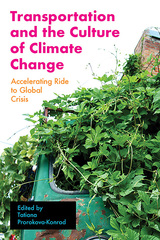
The essays in Transportation and the Culture of Climate Change cover an eclectic range of subject matter, from the association of bicycles with childhood to the songs of Bruce Springsteen, but are united in a central conviction: “Transport is a considerable part of our culture that is as hard to transform as it is for us to stop using fossil fuels—but we do not have an alternative.”
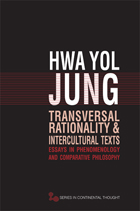
Transversality is the keyword that permeates the spirit of these thirteen essays spanning almost half a century, from 1965 to 2009. The essays are exploratory and experimental in nature and are meant to be a transversal linkage between phenomenology and East Asian philosophy.
Transversality is the concept that dispels all ethnocentrisms, including Eurocentrism. In the globalizing world of multiculturalism, Eurocentric universalism falls far short of being universal but simply parochial at the expense of the non-Western world. Transversality is intercultural, interspecific, interdisciplinary, and intersensorial. Transversal Rationality and Intercultural Texts means to transform the very way of philosophizing itself by infusing or hybridizing multiple traditions in the history of the world.
Like no other scholar, Jung bridges the gap between Asian and Western cultures. By engaging Western philosophers as diverse as Bacon, Descartes, Heidegger, Hegel, Merleau-Ponty, Derrida, Glissant, Barthes, Fenollosa, McLuhan, and Eastern philosophers such as Wang Yang-ming, Nishida Kitaro, Nishitani Keiji, Watsuji Tetsuro, Nhat Hanh, and Suzuki Daisetz Teitaro, this book marks an unparalleled contribution to comparative philosophy and the study of philosophy itself.
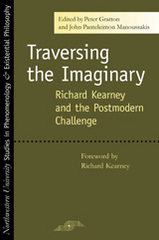
The book opens with Kearney's own "prelude" in which he traces his intellectual itinerary as it traverses the three imaginaries explored in the volume: the dialogical, the political, and the narrative. The interviews that follow the first section allow readers to listen in on conversations between Kearney and some of the most interesting and respected thinkers of our time—Noam Chomsky, Charles Taylor, Jacques Derrida, Paul Ricouer, and Martha Nussbaum—as they reveal new and unexpected aspects of their thought on stories and mourning, ethics and narrative, terror and religion, intellectuals and ideology. The next section, on the political imaginary, looks at Kearney's distinctive contribution to the political situation in Ireland and in Europe more generally; and in the last, on narrative, writers including David Wood, Terry Eagleton, and Mark Dooley focus on Kearney's novels as instances of narrative theory put into literary practice. Concluding with Kearney's postscript, an essay on "Traversals and Epiphanies in Joyce and Proust," the volume comes full circle, encompassing the full extent of Richard Kearney's engagement and offerings as a philosopher,
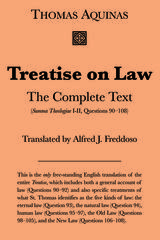
St. Thomas’s account of law is firmly embedded within a general moral theory that begins with a rich conception of human flourishing, i.e., the good for human beings (Questions 1–5). This good consists, first and foremost, in our ultimate and intimate union with the Persons of the Blessed Trinity – a union that in our present state we can grasp intellectively and pursue affectively only with God’s supernatural assistance. It is within this framework that we order our loves and pursue the more proximate goals they open up to us as human beings in this life. Given the appropriate goals, the next question is how we can get from where we are, in the grips of the consequences of Original Sin, to where we want to be. The answer is: by means of (a) human actions that are good, i.e., rightly ordered toward our ultimate end and (b) the habits that these actions either engender or flow from. In analyzing human actions (Questions 6–21) and their relation to the passions (Questions 22–48), St. Thomas gives a general account of what he calls the ‘intrinsic principles’ of human actions and their associated habits – both virtues (Questions 49–70) and vices (Questions 71–89). It is only then that he turns to what he calls the ‘extrinsic principles’ of good human actions, viz., law (Questions 90–108) and grace (Questions 109–114).
According to St. Thomas, law, far from supplanting virtue as a basic principle of action, serves as an independent principle of action that complements virtue and is itself capable of being factored into practical deliberation. The reason is that all of God’s
precepts, prohibitions, and punishments are aimed at promoting the good of the whole universe and, more particularly, the good for human beings, both individually and within the various forms of social life. Because of this, law serves as both a restraint on bad actions and a spur to good action, i.e., a restraint on actions that take us away from virtue and genuine human flourishing and a spur to actions that promote virtue and flourishing.
There are many benefits of having the whole treatise rather than just the first few questions, as has been the standard practice in previous editions of the Treatise on Law. To mention just a few of these benefits, the question on the moral precepts of the Old Law (question 100) helps to illuminate in many different ways the earlier questions on natural law and human law (questions 94–97). Again, the questions on the ceremonial and judicial precepts of the Old Law (questions 101–105) demon-strate in depth the symbiotic relationship that St. Thomas takes to obtain between the Old Testament and the New Testament. The questions on the New Law provide an introduction to the Christian way of life that will be described in incomparable detail in the Second Part of the Second Part, the bulk of which is structured around the treatment of the three theological virtues and the four cardinal virtues.
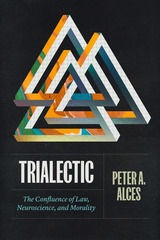
A thought-provoking examination of how insights from neuroscience challenge deeply held assumptions about morality and law.
As emerging neuroscientific insights change our understanding of what it means to be human, the law must grapple with monumental questions, both metaphysical and practical. Recent advances pose significant philosophical challenges: how do neuroscientific revelations redefine our conception of morality, and how should the law adjust accordingly?
Trialectic takes account of those advances, arguing that they will challenge normative theory most profoundly. If all sentient beings are the coincidence of mechanical forces, as science suggests, then it follows that the time has come to reevaluate laws grounded in theories dependent on the immaterial that distinguish the mental and emotional from the physical. Legal expert Peter A. Alces contends that such theories are misguided—so misguided that they undermine law and, ultimately, human thriving.
Building on the foundation outlined in his previous work, The Moral Conflict of Law and Neuroscience, Alces further investigates the implications for legal doctrine and practice.
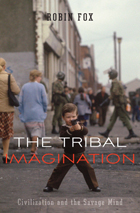
We began as savages, and savagery has served us well—it got us where we are. But how do our tribal impulses, still in place and in play, fit in the highly complex, civilized world we inhabit today? This question, raised by thinkers from Freud to Lévi-Strauss, is fully explored in this book by the acclaimed anthropologist Robin Fox. It takes up what he sees as the main—and urgent—task of evolutionary science: not so much to explain what we do, as to explain what we do at our peril.
Ranging from incest and arranged marriage to poetry and myth to human rights and pop icons, Fox sets out to show how a variety of human behaviors reveal traces of their tribal roots, and how this evolutionary past limits our capacity for action. Among the questions he raises: How real is our notion of time? Is there a human “right” to vengeance? Are we democratic by nature? Are cultural studies and fascism cousins under the skin? Is evolutionary history coming to an end—or just getting more interesting? In his famously informative and entertaining fashion, drawing links from Volkswagens to Bartók to Woody Guthrie, from Swinburne to Seinfeld, Fox traces our ongoing struggle to maintain open societies in the face of profoundly tribal human needs—needs which, paradoxically, hold the key to our survival.
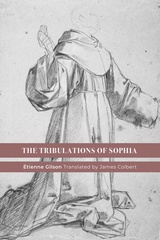
The heart of the book is entitled, “Three Lectures on Thomism and its Current Situation.” During the Second Vatican Council and its immediate aftermath, the status of Thomism in Catholic intellectual circles and institutions was vigorously challenged. Once again, the problem of Thomism emerges: What is Thomism and where does it belong? Gilson’s devotion to elaborating the nature of Christian philosophy compels him to confront this question head-on. Indeed, because Gilson approaches Thomism as the veritable model for Christian philosophy he cannot ignore the attempts to suppress or supplant it.
And yet this section also contains a fourth lecture on Teilhard de Chardin, whom Gilson knew and held in high esteem. Was Teilhard's thought to become the new Christian philosophy and theology? Was it even appropriate to label his thought as proper philosophy and theology?
The second, somewhat shorter, portion of the book wrestles with the theme of dialogue that was very much in vogue in the 1960s. The central figure here is the French Marxist Roger Garaudy, internationally known for his call to dialogue with Christians. Gilson denies any possibility of such a dialogue, and certainly any usefulness in it. “I regret to say—not having myself any of the virtues of a skilled dialoguer, which are not to listen to what is being said and to take it in a sense that makes it easy to refute. It is a chimerical hope that there should be two people who proceed otherwise.” But specifically on the point of Christian and Marxist dialogue, from the massive ideological, bestial corpus of Marxism Gilson carves out its fundamental need for the world and serves it back to Garaudy, but without garnish, for among Marxists each has his own particular manner of impoverishing the concept of man.
What might be called the postscript of the book, “Wandering Amid the Ruins,” shares some of Gilson's own experiences and unease in the unsettled situation of the Catholic Church at that time. “The Council was the work of truly supernatural courage. For more than three centuries the Church was harshly blamed for not having taken the initiative to make necessary reforms in the sixteenth century.” Yet Gilson laments that perhaps the manner of enacting reform is confused and not in all cases simply intent on reversing the trends of empty churches and the vocations drought. Perhaps we have not understood the Council at all. Gilson’s kind but clear description of the turmoil in Catholic teaching and thought is for the reader essential to any understanding of the tension and transitions of this period of history.

One of our most brilliant evolutionary biologists, Richard Lewontin has also been a leading critic of those—scientists and non-scientists alike—who would misuse the science to which he has contributed so much. In The Triple Helix, Lewontin the scientist and Lewontin the critic come together to provide a concise, accessible account of what his work has taught him about biology and about its relevance to human affairs. In the process, he exposes some of the common and troubling misconceptions that misdirect and stall our understanding of biology and evolution.
The central message of this book is that we will never fully understand living things if we continue to think of genes, organisms, and environments as separate entities, each with its distinct role to play in the history and operation of organic processes. Here Lewontin shows that an organism is a unique consequence of both genes and environment, of both internal and external features. Rejecting the notion that genes determine the organism, which then adapts to the environment, he explains that organisms, influenced in their development by their circumstances, in turn create, modify, and choose the environment in which they live.
The Triple Helix is vintage Lewontin: brilliant, eloquent, passionate, and deeply critical. But it is neither a manifesto for a radical new methodology nor a brief for a new theory. It is instead a primer on the complexity of biological processes, a reminder to all of us that living things are never as simple as they may seem.
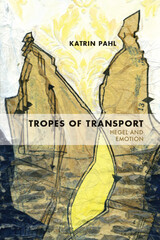
Intervening in the multidisciplinary debate on emotion, Tropes of Transport offers a fresh analysis of Hegel’s work that becomes an important resource for Pahl’s cutting-edge theory of emotionality. If it is usually assumed that the sincerity of emotions and the force of affects depend on their immediacy, Pahl explores to what extent mediation—and therefore a certain degree of manipulation but also of sympathy—is constitutive of emotionality. Hegel serves as a particularly helpful interlocutor not only because he offers a sophisticated analysis of mediation, but also because, rather than locating emotion in the heart, he introduces impersonal tropes of transport, such as trembling, release, and shattering.
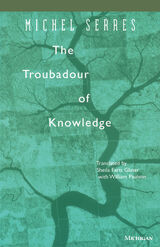
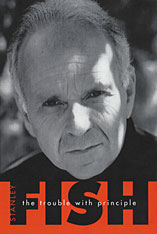
Stanley Fish is an equal opportunity antagonist. A theorist who has taken on theorists, an academician who has riled the academy, a legal scholar and political pundit who has ruffled feathers left and right, Fish here turns with customary gusto to the trouble with principle. Specifically, Fish has a quarrel with neutral principles. The trouble? They operate by sacrificing everything people care about to their own purity. And they are deployed with equal highmindedness and equally absurd results by liberals and conservatives alike.
In this bracing book, Fish argues that there is no realm of higher order impartiality--no neutral or fair territory on which to stake a claim--and that those who invoke one are always making a rhetorical and political gesture. In the end, it is history and context, the very substance against which a purportedly abstract principle defines itself, that determines a principle's content and power. In the course of making this argument, Fish takes up questions about academic freedom and hate speech, affirmative action and multiculturalism, the boundaries between church and state, and much more. Sparing no one, he shows how our notions of intellectual and religious liberty--cherished by those at both ends of the political spectrum--are artifacts of the very partisan politics they supposedly transcend. The Trouble with Principle offers a provocative challenge to the debates of our day that no intellectually honest citizen can afford to ignore.
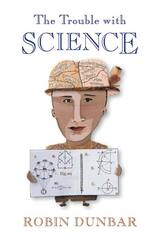
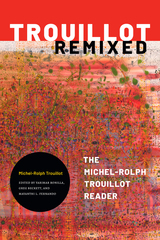
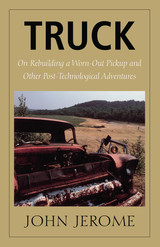
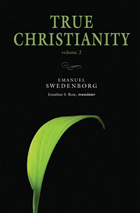
In the final years of his life, Emanuel Swedenborg wrote True Christianity, an opus that served both to contextualize his theology within contemporary Christianity and to serve as a road map for the new spiritual age that would follow. This second volume covers topics such as freedom of choice, repentance, the transformation of a person’s inner being during spiritual awakening, the rites of baptism and the Holy Supper (communion), and the second coming of the Lord.
This new translation is part of the New Century Edition of the Works of Emanuel Swedenborg, an ongoing project to render Swedenborg’s theological works in clear, contemporary language that reflects the simple and engaging style of the original Latin. The portable edition contains the text of the New Century Edition translation, but not the annotations or other supplementary materials found in the deluxe edition.
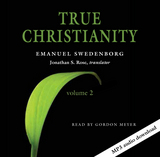
In the final years of his life, Emanuel Swedenborg wrote True Christianity, an opus that served both to contextualize his theology within contemporary Christianity and to serve as a road map for the new spiritual age that would follow. This second volume covers topics such as freedom of choice, repentance, the transformation of a person’s inner being during spiritual awakening, the rites of baptism and the Holy Supper (communion), and the second coming of the Lord.
This new translation is part of the New Century Edition of the Works of Emanuel Swedenborg, an ongoing project to render Swedenborg’s theological works in clear, contemporary language that reflects the simple and engaging style of the original Latin. The portable edition contains the text of the New Century Edition translation, but not the annotations or other supplementary materials found in the deluxe edition.
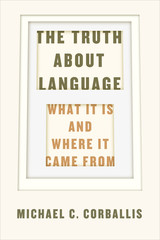
But as Michael C. Corballis shows in The Truth about Language, it’s time to reconsider those assumptions. Language, he argues, is not the product of some “big bang” 60,000 years ago, but rather the result of a typically slow process of evolution with roots in elements of grammatical language found much farther back in our evolutionary history. Language, Corballis explains, evolved as a way to share thoughts—and, crucially for human development, to connect our own “mental time travel,” our imagining of events and people that are not right in front of us, to that of other people. We share that ability with other animals, but it was the development of language that made it powerful: it led to our ability to imagine other perspectives, to imagine ourselves in the minds of others, a development that, by easing social interaction, proved to be an extraordinary evolutionary advantage.
Even as his thesis challenges such giants as Chomsky and Stephen Jay Gould, Corballis writes accessibly and wittily, filling his account with unforgettable anecdotes and fascinating historical examples. The result is a book that’s perfect both for deep engagement and as brilliant fodder for that lightest of all forms of language, cocktail party chatter.
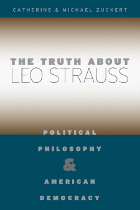
Is Leo Strauss truly an intellectual forebear of neoconservatism and a powerful force in shaping Bush administration foreign policy? The Truth about Leo Strauss puts this question to rest, revealing for the first time how the popular media came to perpetuate such an oversimplified view of such a complex and wide-ranging philosopher. More important, it corrects our perception of Strauss, providing the best general introduction available to the political thought of this misunderstood figure.
Catherine and Michael Zuckert—both former students of Strauss—guide readers here to a nuanced understanding of how Strauss’s political thought fits into his broader philosophy. Challenging the ideas that Strauss was an inflexible conservative who followed in the footsteps of Nietzsche, Heidegger, and Carl Schmitt, the Zuckerts contend that Strauss’s signature idea was the need for a return to the ancients. This idea, they show, stemmed from Strauss’s belief that modern thought, with its relativism and nihilism, undermines healthy politics and even the possibility of real philosophy. Identifying this view as one of Strauss’s three core propositions—America is modern, modernity is bad, and America is good—they conclude that Strauss was a sober defender of liberal democracy, aware of both its strengths and its weaknesses.
The Zuckerts finish, appropriately, by examining the varied work of Strauss’s numerous students and followers, revealing the origins—rooted in the tensions within his own thought—oftheir split into opposing camps. Balanced and accessible, The Truth about Leo Strauss is a must-read for anyone who wants to more fully comprehend this enigmatic philosopher and his much-disputed legacy.
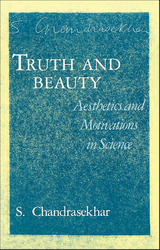
The late S. Chandrasekhar was best known for his discovery of the upper
limit to the mass of a white dwarf star, for which he received the Nobel
Prize in Physics in 1983. He was the author of many books, including
The Mathematical Theory of Black Holes and, most recently,
Newton's Principia for the Common Reader.
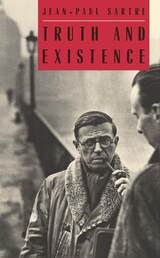
Truth and Existence is introduced by an extended biographical, historical, and analytical essay by Ronald Aronson.
"Truth and Existence is another important element in the recently published links between Sartre's existentialist ontology and his later ethical, political, and literary concerns. . . . The excellent introduction by Aronson will help readers not experienced in reading Sartre."—Choice
"Accompanied by an excellent introduction, this dense, lucidly translated treatise reveals Sartre as a characteristically 20th-century figure."—Publishers Weekly
Jean-Paul Sartre (1906-1980) was offered, but declined, the Nobel Prize for literature in 1964. His many works of fiction, drama, and philosophy include the monumental study of Flaubert, The Family Idiot, and The Freud Scenario, both published in translation by the University of Chicago Press.
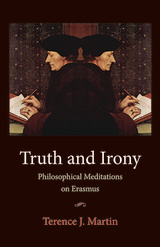
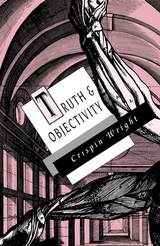

This collection of Michael Dummett’s philosophical essays, spanning more than twenty years, ranges in topic from time to the philosophy of mathematics, but is unified by a steady philosophical outlook. The essays are, in one way or another, informed by Dummett’s concern with metaphysical questions and his belief that the correct approach to them is via the theory of meaning. Reflected here is Dummett’s conviction that the concept of truth is of central importance both for the theory of meaning and for metaphysics. As he sees it, an adequate elucidation of the concept of truth requires nothing less than the construction of a satisfactory theory of meaning. At the same time, resolution of the traditional problems of metaphysics turns critically upon the way in which the concept of truth applies to each of various large ranges of statements, and especially upon whether the statements in each such range satisfy the principle that every statement must be true or false.
The book includes all Dummett’s philosophical essays that were published or given as public lectures before August 1976, with the exception of a few he did not think it worthwhile to reprint and of the two entitled “What Is a Theory of Meaning?” One essay appears here for the first time in English and two have not been previously published. In an extensive preface, Dummett comments on the essays and seeks to relate them to the philosophical background against which they were written.
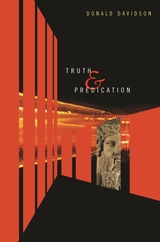
This brief book takes readers to the very heart of what it is that philosophy can do well. Completed shortly before Donald Davidson's death at 85, Truth and Predication brings full circle a journey moving from the insights of Plato and Aristotle to the problems of contemporary philosophy. In particular, Davidson, countering many of his contemporaries, argues that the concept of truth is not ambiguous, and that we need an effective theory of truth in order to live well.
Davidson begins by harking back to an early interest in the classics, and an even earlier engagement with the workings of grammar; in the pleasures of diagramming sentences in grade school, he locates his first glimpse into the mechanics of how we conduct the most important activities in our life--such as declaring love, asking directions, issuing orders, and telling stories. Davidson connects these essential questions with the most basic and yet hard to understand mysteries of language use--how we connect noun to verb. This is a problem that Plato and Aristotle wrestled with, and Davidson draws on their thinking to show how an understanding of linguistic behavior is critical to the formulating of a workable concept of truth.
Anchored in classical philosophy, Truth and Predication nonetheless makes telling use of the work of a great number of modern philosophers from Tarski and Dewey to Quine and Rorty. Representing the very best of Western thought, it reopens the most difficult and pressing of ancient philosophical problems, and reveals them to be very much of our day.
READERS
Browse our collection.
PUBLISHERS
See BiblioVault's publisher services.
STUDENT SERVICES
Files for college accessibility offices.
UChicago Accessibility Resources
home | accessibility | search | about | contact us
BiblioVault ® 2001 - 2024
The University of Chicago Press


